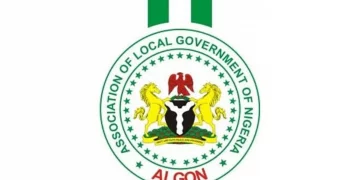The federal government and the European Union (EU) have reaffirmed their commitment to deepening climate governance and sustainability efforts in Nigeria as the Nigeria Climate Change Response Programme (NCCRP) officially came to a close on Monday.
Speaking during the final dissemination seminar, themed “Climate Change Governance: The Importance, Where We Are, and the Way Forward,” in Abuja, the Minister of Environment, Balarabe Abbas Lawal, described the NCCRP as a landmark programme that has significantly advanced Nigeria’s climate agenda through strengthened institutions, improved awareness, and enhanced collaboration at all levels.
“Since its launch in 2020, the NCCRP has achieved notable results, including the establishment of a robust Measurement, Reporting and Verification (MRV) System, and the development of a Climate Change Education Curriculum for schools,” Lawal said.
He added that the programme also facilitated the training of journalists on climate reporting, leading to the creation of the Nigeria Journalists for Climate Action Network (NIJOCAN), and supported waste management assessments in Kano, Ogun, Abia, and Bauchi States.
While acknowledging implementation challenges, the minister noted that the project stayed on course through proactive planning, stakeholder engagement, and technical support.
“The ministry remains committed to driving sustainable environmental initiatives and providing policy guidance to ensure the long-term impact of these efforts,” he assured.
On his part, the Head of Cooperation, European Union delegation to Nigeria and ECOWAS, Massimo De Luca. commended the partnership between the EU and Nigeria, describing the NCCRP as “a model of effective collaboration” that has strengthened transparency and accountability in climate governance.
“Together, we have built credible systems that enhance Nigeria’s ability to attract international climate finance. Through communication campaigns and education, we have inspired a new generation of climate advocates who understand the urgency of climate action,” he said.
He highlighted the programme’s role in supporting waste management initiatives, advancing greenhouse gas measurement, and positioning Nigeria as a credible player in global climate mechanisms through the development of Internationally Transferred Mitigation Outcomes (ITMOs).
He, however, stressed the need to sustain and scale the gains achieved, noting that “climate action is a marathon, not a sprint.”
“While this specific project is ending, our partnership is not. The EU remains a steadfast partner in Nigeria’s climate transition,” he affirmed.
He also announced the commencement of the EU Green Diplomacy Week, which will feature discussions on emissions accounting, carbon markets, and gas flaring, as part of ongoing efforts to advance environmental sustainability.
The NCCRP, implemented by the Federal Ministry of Environment with EU funding and technical support, has focused on strengthening climate policy, institutional coordination, and community-level resilience to support Nigeria’s low-carbon development pathway.
Participants at the closing seminar, included officials from the National Council on Climate Change, the Department of Climate Change and implementing partners.
Both parties agreed that while the NCCRP has come to an end, its impact will continue to shape Nigeria’s climate governance framework and inspire future partnerships toward a greener and more resilient nation.





